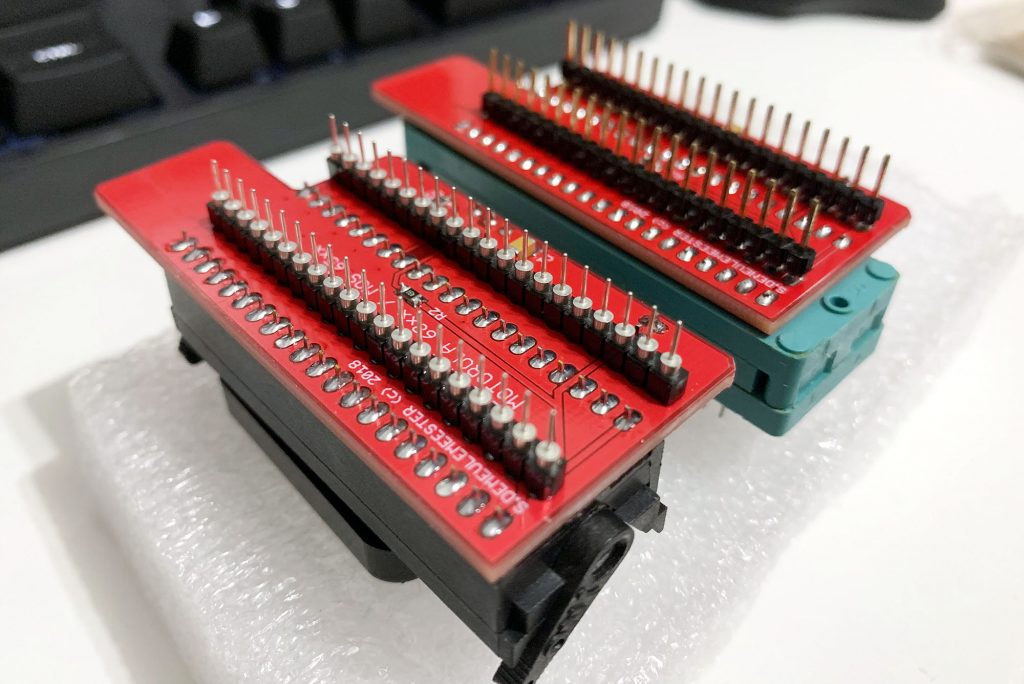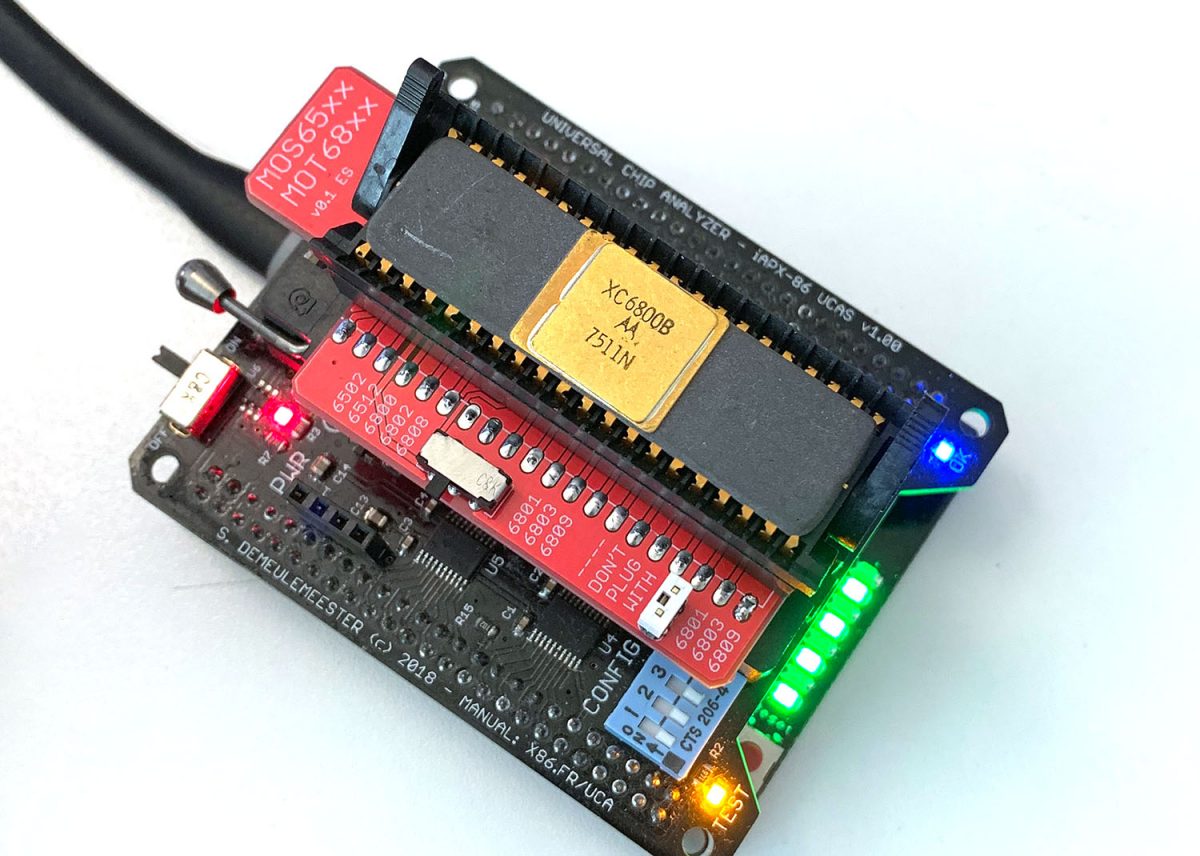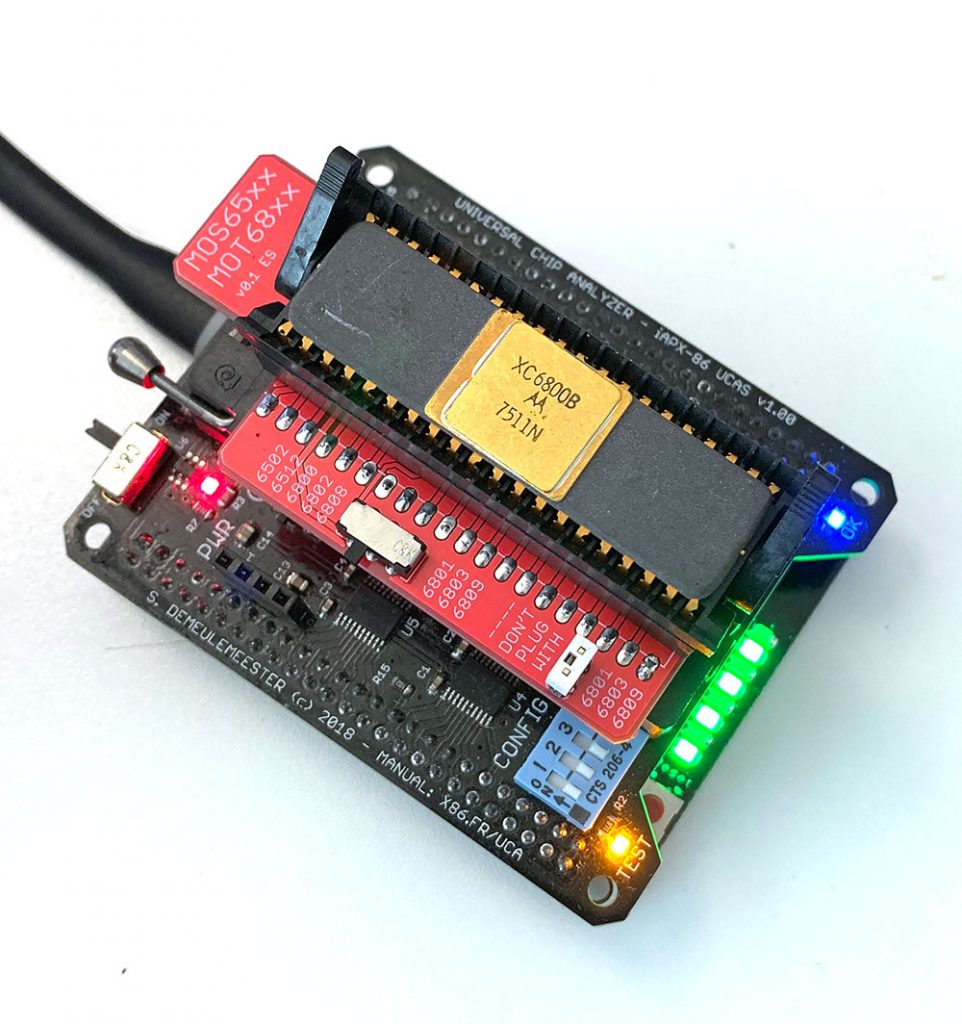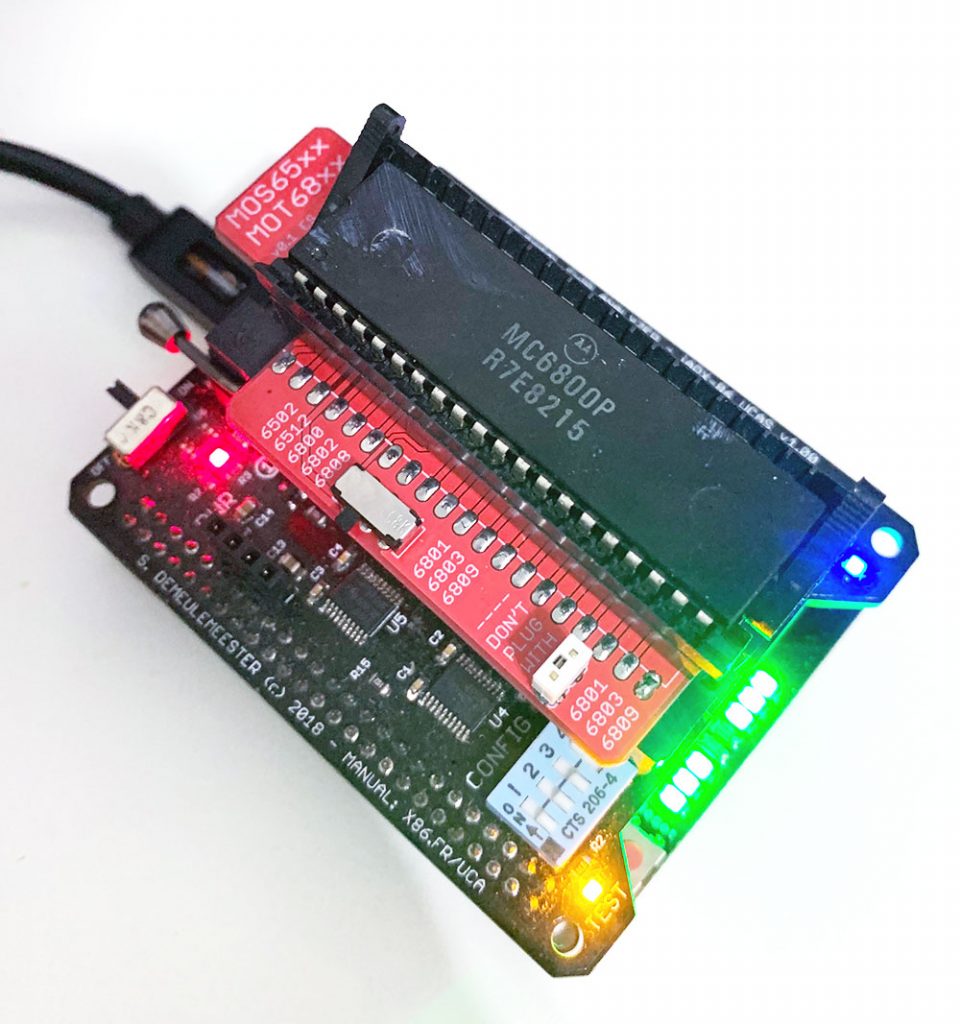Finally, two years after a Intel 8088 (almost) booted for the first time on a very early UCA, I’m glad to announce the support for the last major 8-bit CPU : the famous Motorola 6800 !
The Motorola 6800, released in 1974, was one of the most advanced CPU in the 70s. Being TTL-compatible and only requiring 5V power, it was also easy to use for hobbyist (albeit a two-phase clock was mandatory). Unfortunately, its high price prevented the 6800 to reach the DIY “mainstream” market. Many computer pioneer preferred the MOS 6500 and the Intel 8080, but Motorola soon released a much cheaper, MCU-revision of the 6800 – the 6809 – that has been very successful.
The architecture of the 6800 is quite simple but efficient. It uses two accumulators, a 8-bit bidirectional data bus, a 16-bit stack pointer, and a 16-bit dedicated address bus that could address 64 KB of memory. Unlike the Intel 8080, the Motorola 6800 uses memory-mapped I/O : it doesn’t include specific instructions for I/O and they are handled as standard memory accesses.
Implementing support for the 6800 on the Universal Chip Analyzer (U.C.A.) wasn’t too difficult. The dual-phase clock was the main issue, as timings are usually tighter than with single-phase clock. Another issue was the UCA adapter. I designed it to support both MOS 65xx and Motorola 68xx, but the cheap chinese ZIF Socket (3M clone) I soldered on was crappy. The contact between the adapter and the main ZIF Socket wasn’t also very good, due to the standard 2.54mm pin header. Too thick, too square. So I build another adapter with a much more efficient Socket (an ARIES low-profile, burn-in ZIF Socket) and some new pin headers that mimic a real CPU :

Everything worked as expected and very reliably with that new adapter! Here is the UCA testing a Motorola MC6800P at 2 MHz and a very rare prototype (Motorola XC6800B) at 1 MHz :
Testing frequency can be set at 1.0 / 1.5 / 2.0 or 3.0 MHz to match the most popular 68xx.
Support for Motorola 6801/6802/6803/6808/6809 is planned soon.
More important, a brand new era is coming for the UCA, as I can now focus on much more advanced, 32-bit CPU. Many news planned soon!



